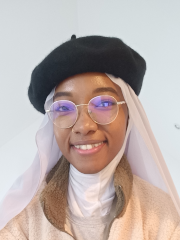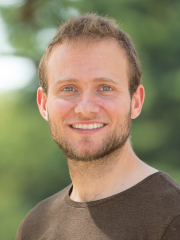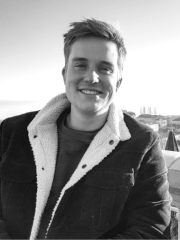
|
|
|
Youth@MBE > Youth Organizing Committee
Organizing Committee Hisoilat Bacar, Lyon, France
Hisoilat Bacar is currently pursuing a Ph.D. at the Institute of Functional Genomics of Lyon (IGFL) in Florence Ruggiero’s lab which is interested in studying the dynamics of extracellular matrix networks in development, regeneration and disease. Her Ph.D. project specifically aims at understanding the dynamics of skin regeneration and extracellular matrix remodeling using zebrafish as a model organism and real-time imaging techniques to capture the intricate multistep process of this complex biological event. Hisoilat's journey into Matrix Biology began during her master's degree, where she explored the impact of secreted matrix components on pancreatic stellate cells within an oncogenic environment. She then joined the IGFL for her master’s internship to characterize the muscle stem cells matrisome, showcasing her skills in bioinformatics. This experience ultimately shaped the trajectory of her academic career, with the decision to pursue a Ph.D. thesis within the same team at IGFL. Her current research topic combines her keen interest in the extracellular matrix with her skills in biology and bioinformatics.
Thomas Loustau, Strasbourg, France
Nominated this year as Associate Professor at the University of Strasbourg (France) and the Virology Molecular laboratory (IBMC, CNRS), which works on understanding the molecular mechanisms of HIV latency in the central nervous system. He has been working for many years on the pathophysiological role of the extracellular matrix (ECM). Firstly, as part of his PhD research, carried out between the University of Avignon (France) and Toronto (Canada), where he worked on the importance of the ECM and fibrosis in blocking adipose tissue angiogenesis during obesity. He then pursued detailed research into the role of the Tenascin-C matrix protein in inhibiting the antitumor immune response in Gertraud Orend's Inserm U1109 laboratory (Strasbourg, France). In particular, he has contributed to demonstrating how TNC sequesters dendritic and CD8+ T cells in the stroma of head and neck tumors and breast cancer.
Julia Marzi, Tubingen, Germany
Julia is an independent investigator with extensive experience in implementing non-invasive microscopic imaging techniques for biomedical applications. Major techniques to assess cellular states and tissue conditions are Raman microspectroscopy, fluorescence lifetime imaging and multiphoton imaging. These are implemented to visualize and characterize tissue remodeling (e.g. fibrosis) in a molecular-sensitive fashion. She currently holds a joint Group Leader position between the University of Tübingen, Institute of Biomedical Engineering and the non-academic research institution NMI Natural and Medical Sciences Institute in Reutlingen, Germany. The group aims to combine multimodal in situ readouts with advanced in vitro models (e.g. Organ-on-Chip systems) to fully recapitulate and monitor cellular dynamics to study (patho-)physiological processes in patient-relevant models and to identify novel diagnostic biomarkers.
Arnaud Mieville, Zurich, Switzerland
Ph.D. student in the Laboratory of Applied Mechanobiology at ETH Zurich. His work focuses on understanding the tensional changes that occur in pathological ECM and how these modifications affect the reciprocal crosstalk between cells and ECM. Using a nanoscale tension sensor, Arnaud is mapping the changes in ECM fiber tension in cancer and tries to understand how this affects cancer development and progression as well as resident cells behavior. He specialized in oncology and immunology during his master’s studies at the University of Lausanne, where his research focused on the development of xenograft tendon scaffolds at the Unit of Regenerative Therapy of the Lausanne University Hospital (CHUV).
|





